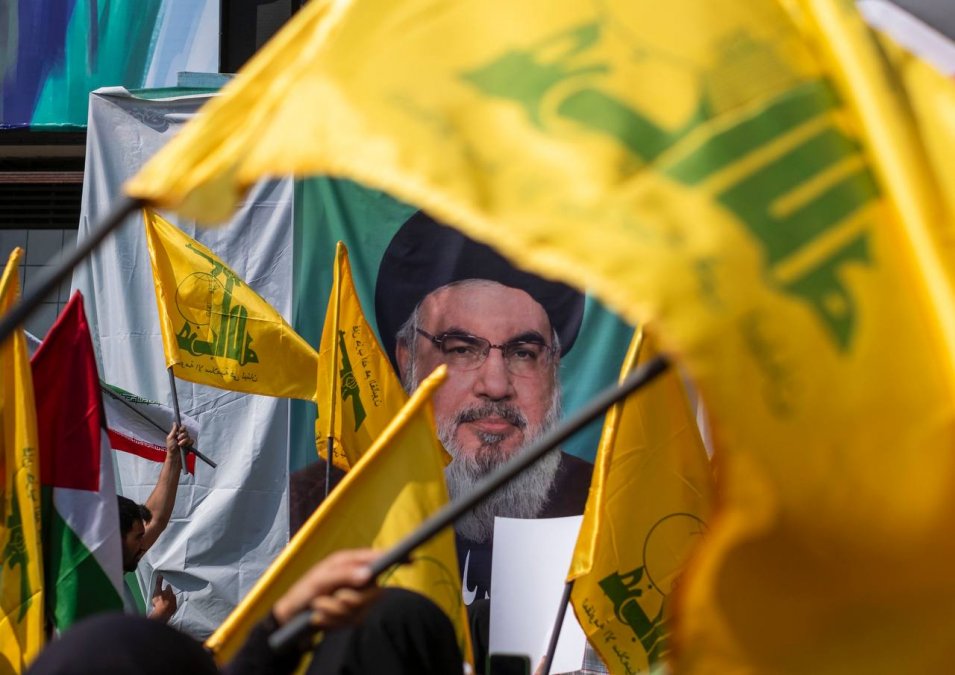The End of Nasrallah
Israel’s Announcement: Nasrallah Killed in Lebanon
The End of Nasrallah: Israel announced the killing of Hassan Nasrallah, the leader of Hezbollah for over thirty years. This is the final move to escalate tensions but paves the way for unpredictable scenarios.
Hassan Nasrallah can no longer terrorize the world. These are the words used in a social media post by the Israeli Defense Forces (IDF) to confirm the killing of the Secretary-General of Hezbollah, the Lebanese paramilitary group. This Shia movement, politically linked with Iran and considered one of Tehran’s most important assets in the region, did not immediately confirm the news and started spreading some scattered reports from Friday evening.
In any case, this is the climax of escalating tensions that began last week with the explosion of pagers and walkie-talkies in the possession of various Hezbollah forces, which also resulted in civilian casualties and injuries. Subsequently, Israel launched extensive bombings in the land of the cedars, continuing to eliminate Hezbollah leaders like Ibrahim Aqil, head of the elite Radwan forces, and reaching the chain of command to Nasrallah, the top figure among the organization’s leaders, which Israel considers entirely a terrorist organization.
What Happened
On Friday evening, the Israeli army intensified its attacks across southern Lebanon and also in Beirut, specifically targeting the southern quarter of the city, considered a Hezbollah stronghold. Following precise intelligence, the Israeli army stated in a note derived from Tel Aviv media that Israeli Air Force fighters conducted a targeted attack on the central headquarters of the Hezbollah terrorist organization located under a residential building in the Dahiyeh area of Beirut.
According to the reconstruction, Ali Karaki, Hezbollah’s number three, was also killed in this attack. It seemed that the Lebanese organization’s commander in the south of the country, Karaki, was killed in an Israeli attack earlier this week, but it later turned out he survived. In the early hours of the attack, in the absence of an official confirmation or denial by Hezbollah regarding the fate of its leader, Tasnim News Agency believed that Nasrallah survived this attack.
However, finally today, Saturday, September 28, Hezbollah confirmed Nasrallah’s death. According to Israeli sources, Tel Aviv had informed the United States shortly before the attack, and Israeli Prime Minister Benjamin Netanyahu had authorized the attack from New York, where he was attending the United Nations General Assembly.
Hezbollah Without Nasrallah
Hezbollah’s history is rooted in the second phase of Lebanon’s internal conflict (1975-1990), and over the years, this movement has monopolized Lebanon’s political life. The fight against Israel is the cornerstone of Hezbollah’s ideology, which has been linked with Iran since its birth in 1982. The Islamic Republic has, in fact, been helping arm and train the Lebanese group’s militants since the 1980s.
Iran’s intention, as at that time, is to use Lebanese militias in the Middle East region. Nasrallah became the Secretary-General of the organization in 1992, and in the same year, Hezbollah participated in parliamentary elections, facing resistance within the party. A major change that Nasrallah’s leadership brought to Hezbollah’s history and ideology was transforming the organization from a primarily sectarian and armed resistance movement with a radical view into a more influential, flexible, and deeply rooted political and military force in Lebanon’s fabric and society.
What Happens Now
The killing of Nasrallah is the latest chapter of a long crisis that began on October 7 of last year. Since then, Israel, besides carrying out a very heavy ground attack in the Gaza Strip in terms of casualties, has eliminated several Hamas, Hezbollah commanders, and also the Iranian Revolutionary Guard.
The raid on Nasrallah comes almost two months after the elimination of Ismail Haniyeh, the political leader of Hamas, at his residence in Tehran.
At this stage, once again, all eyes are on Tehran, which cannot endure a similar blow in silence or with a symbolic reaction like what happened in recent months.
The Iranian leadership, with Ali Khamenei as its leader, was preemptively moved to a safe place after the news of the attack on Beirut was released, likely knowing that it cannot engage in direct confrontation with Israel, which has clear technological superiority as well as nuclear capability and response.
Precisely for this reason, Tehran has for many years employed asymmetric conflict tactics to use its regional proxies for indirect strikes. But the problem is that Tehran’s spearhead in the Middle East, namely Hezbollah, now finds itself leaderless and facing numerous challenges.
Killing Nasrallah places the region on the brink of conflict beyond imagination. It is entirely possible that Israel has known the location of the Hezbollah leader for some time, although many considered it unlikely.
However, until a few months ago, no one thought that Israeli leadership really intended to eliminate him.
Nasrallah has been a thorn in Tel Aviv’s side for over thirty years, but especially after 2006, he set clear rules for interacting with his perennial rival and in many cases avoided conflicts with disastrous consequences.
Killing him today not only casts a shadow over the future of the Lebanese paramilitary party but will also impact Hezbollah’s stance in continuing the war. If Nasrallah was trying in any way to prevent escalation, it is unclear what will happen with a change in leadership.
Ultimately, it is believed that the killing of the Secretary-General of Hezbollah complicates Tehran’s calculations as well. Tehran, which has so far tried to stay away from regional conflicts, today finds its closest ally, who practically supported the development of the so-called axis of resistance, killed, and Hezbollah caught in a difficult and challenging situation.
If until two days ago, Iran’s leader Ali Khamenei praised the power of the Lebanese militias and seemed to want to wash his hands of a possible attack on Israel, today something may have changed. The start of a regional war becomes closer and more likely, and many will have no problem blaming Israel.

